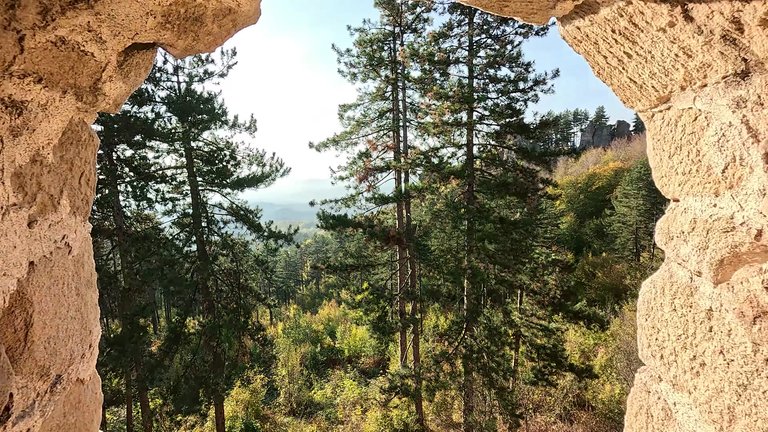
Hello friends, last month we took a small trip to the northwest of Bulgaria to the Montana region. Yes, you read that right, not the state of Montana, but the province of Montana in Bulgaria. In case you didn’t know, there is a Montana province in Bulgaria and this area with its mountains resembles an American state, perhaps Utah. During our time in the Montana region we visited two fortresses, each about 2000 years old and explored the largest cave in the Balkans.
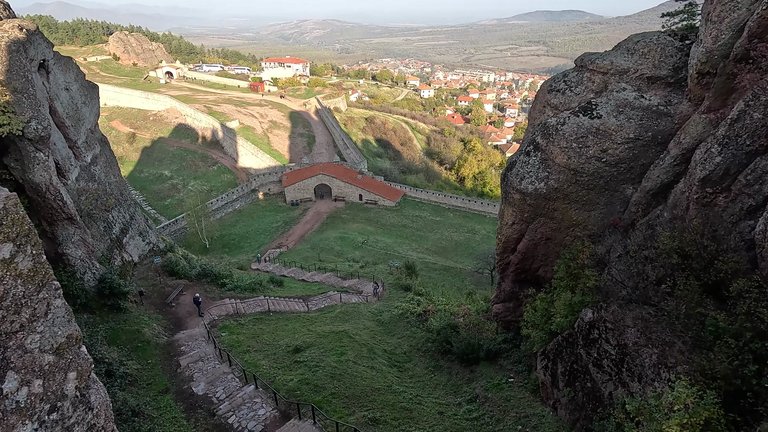
While the summer weather is still felt along the southern Black Sea coast, here, in the northern slopes of the Old Balkan Mountains, it is definitely autumn. The trees have turned yellow and the leaves are starting to fall. The pass is beautiful, as we descended from the mountain range into the Montana region. If you follow our route and visit the same places, you can tell your friends "I just came back from Montana."
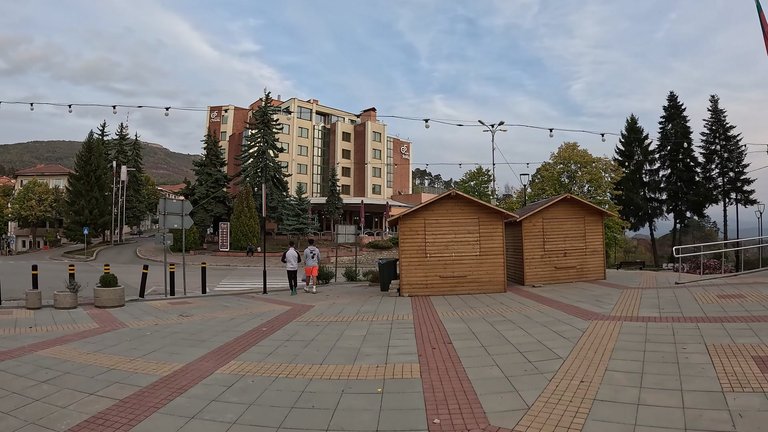
Every time I pass through this mountain range, I am amazed by the views. The scenery is incredible. While other people rush to their jobs, I always want to slow down and just enjoy the mountain views. After this our next stop was the small and charming town of Belogradchik. This town is hidden among these massive rock formations and its main attraction, the Belogradchik Fortress is a tourist magnet.
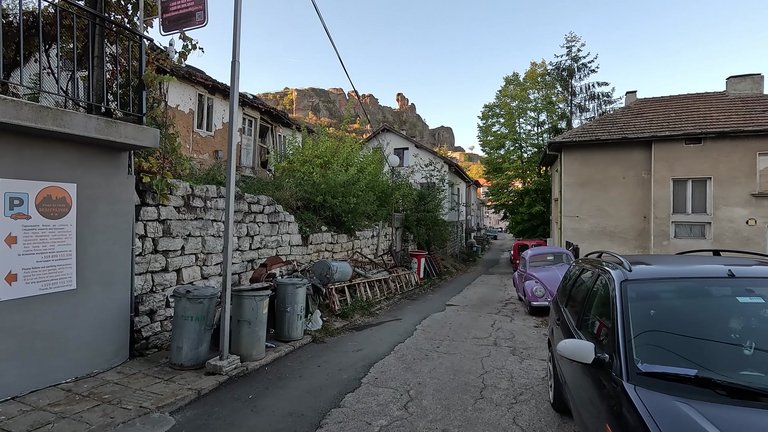
Thanks to Belogradchik fortress the town has developed a lot and has a beautiful infrastructure with many hotels. The views are amazing and the town is very clean and quaint. We had a snack and then settled in the guesthouse where we would be staying for the night. It has become a tradition on our travels to review the places we stay and share recommendations with you. This time we stayed at the Belogradchik Guesthouse. The house has a wonderful renovation, done to an old structure and everything is clean, comfortable and modern. The room we stayed in was fantastic, on the third floor with a newly built bathroom and a dedicated area for children. We also enjoyed a stunning view of the town from the guesthouse terrace while sipping our morning coffee. One morning we saw several hot air balloons take off, which really reminded me of the feeling in Cappadocia.
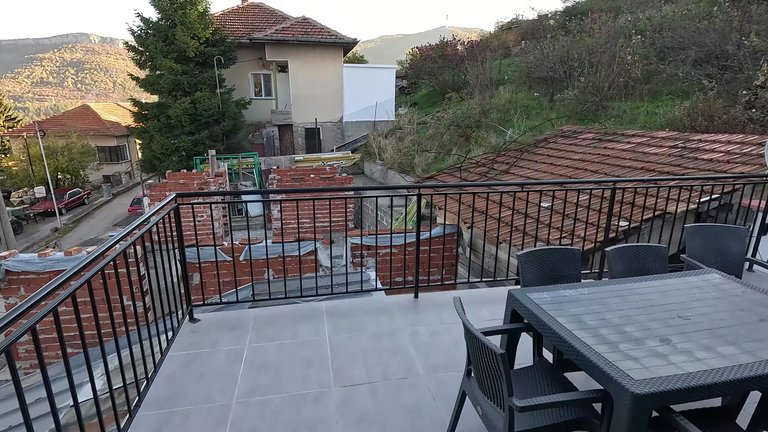
We were very satisfied with the guesthouse and would definitely recommend it.
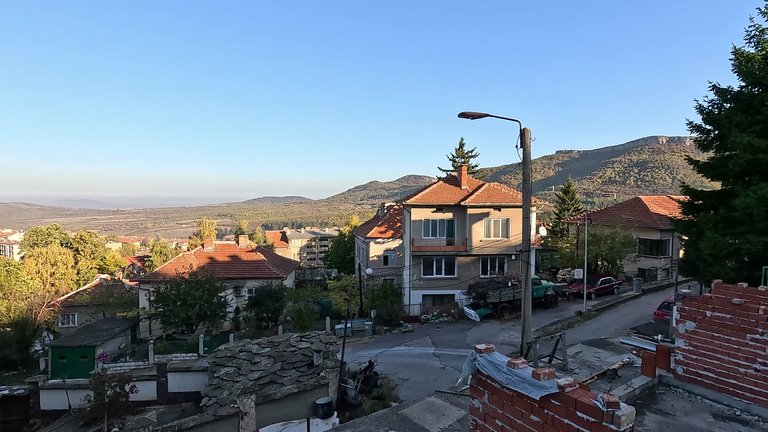
The next morning our first stop was the Belogradchik Fortress. This fortress is located on top of the rocks. On the way we came across an Ottoman mosque, which was one of the first stone buildings in the town. Of course, the traces of the Ottomans are very evident here. We then climbed a bit higher and made our way towards the fortress walls. Along the way we encountered a magnificent horse, which clearly looked like a descendant of one of the famous Ottoman horses. Have you ever seen a horse lying down with its front legs on the ground like this? It was the first time I had seen something like that.
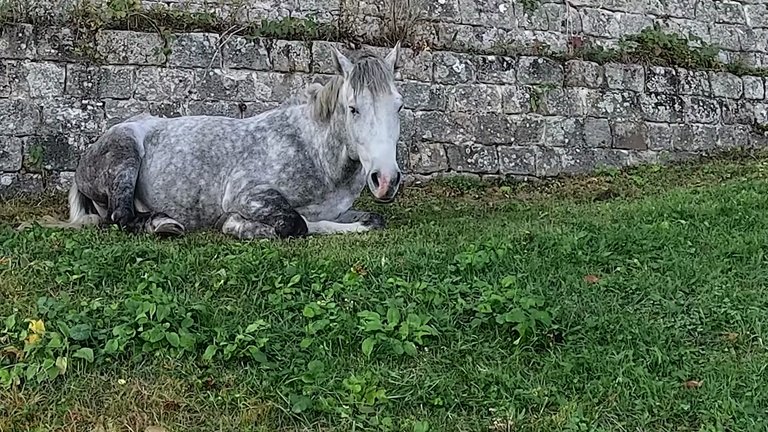
As we climbed up from the town, the first tourists started to arrive at the square in front of the fortress. Here there is a parking lot, a few cafes and of course, a ticket booth. If you’re coming by car, you’ll need to set aside at least a few hours to explore the fortress. There are many natural beauties around the area and I definitely recommend seeing them. it’s worth the time and a bit of energy.
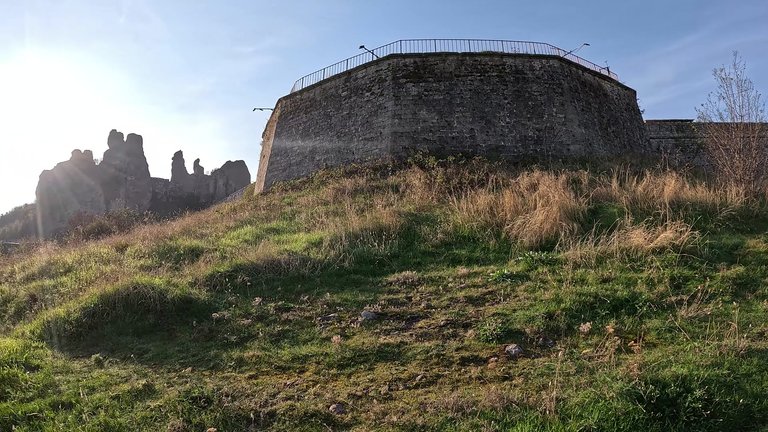
At the entrance of the fortress a local craftsman sells wonderful figurines. But what really caught our attention were not the figurines but the old walls of the fortress. The fortress walls are actually divided into three separate sections. First there is the large garrison courtyard, which was rebuilt by the Ottomans in the 18th century. When we went to this courtyard, we also had the opportunity to look at the fortress walls surrounded by the outer wall.
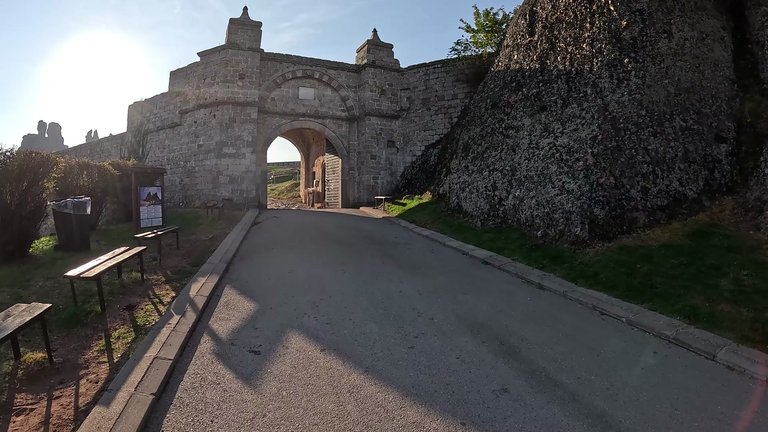
In this fortress there is also a section from the Roman Empire period. The path leading to the fortress passes through many ruined passages and what's interesting is that the walls are beautifully integrated into the rocks. The Roman Empire established a garrison here and the rocks, provided by nature, offered perfect protection for defending the area. Just below the fortress walls, there are arrow slits for archers and in another area, there are openings prepared for cannons. This fortress had a very tough defense and I think it would not have been easy to capture.
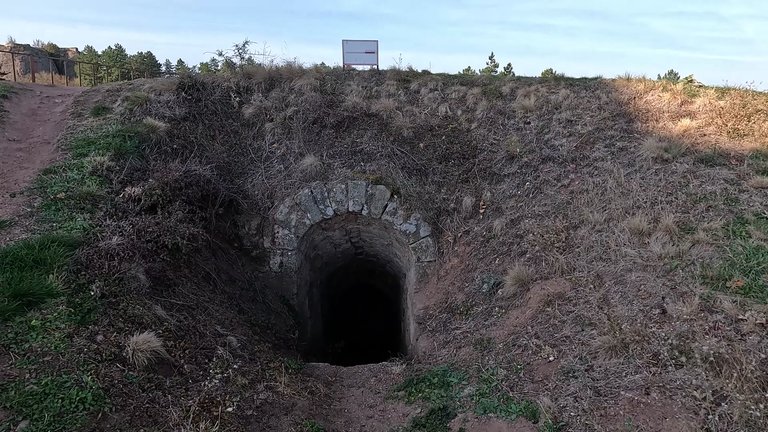
Next we moved on to the second fortress built by Bulgarian King Simeon in the 10th century. We then made our way to the Citadel, the heart of the castle, which was established by the Roman Empire. With a short climb, we reached this important area in the fortress. From here we had a better view of the other sections and walls of the fortress. We continued to explore the castle with its 10th-century walls, Ottoman-era fortifications and the Roman remains above.
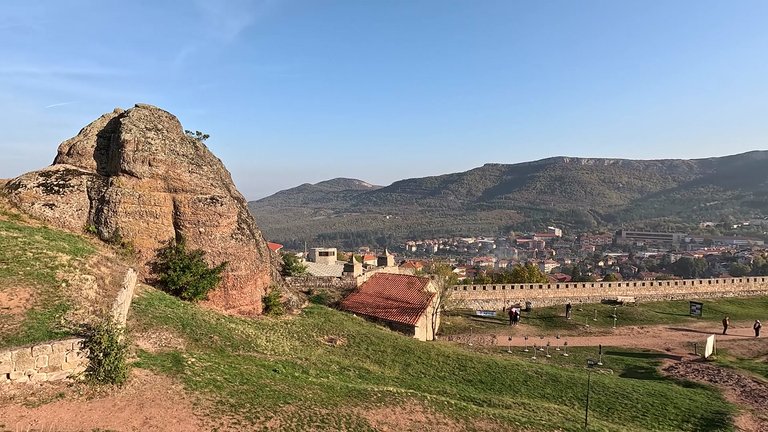
This place is a natural wonder. In the 1980s a Soviet film called Captain Grant's Children was shot here and some of its scenes look like they were filmed in remote areas such as Patagonia. Being here really makes me feel like I am part of the mountainous regions in America. The region is named "Montana" and it definitely seems like the name fits the place.
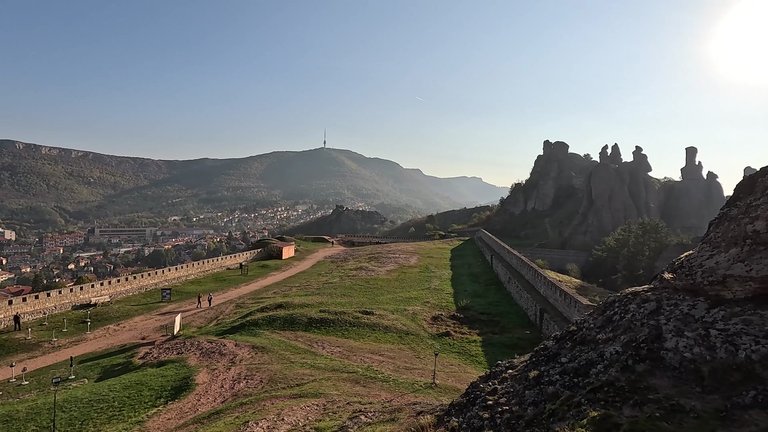
Soon after we climbed to the top of the highest rock formations. Below we could see the town of Belogradchik, which is also known as the "White City." The name was given when the Ottomans conquered the town. On top of these rocks a Roman garrison was established in the 1st century BC. Around 30 legionnaires were stationed here to guard and observe the northern borders. The foundation of Belogradchik Fortress was laid from here. Not only is the view amazing, but this place also has significant historical value. I don't know how much the Roman legionnaires appreciated the beauty here, but to me, it seems like a place where one could easily spend hours, just immersing oneself in the tranquil views offered by nature. Especially in the early morning hours, or even in the evening, the scenery must be beautiful here.
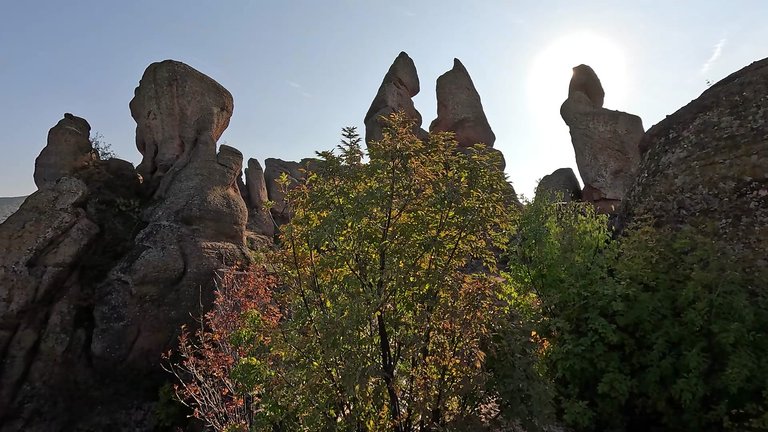
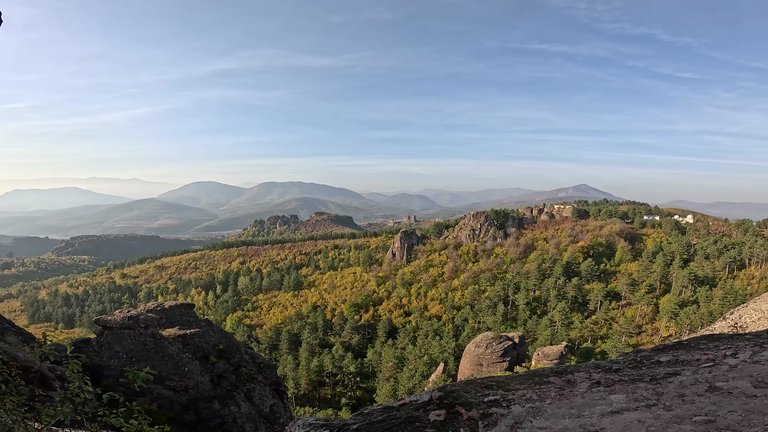
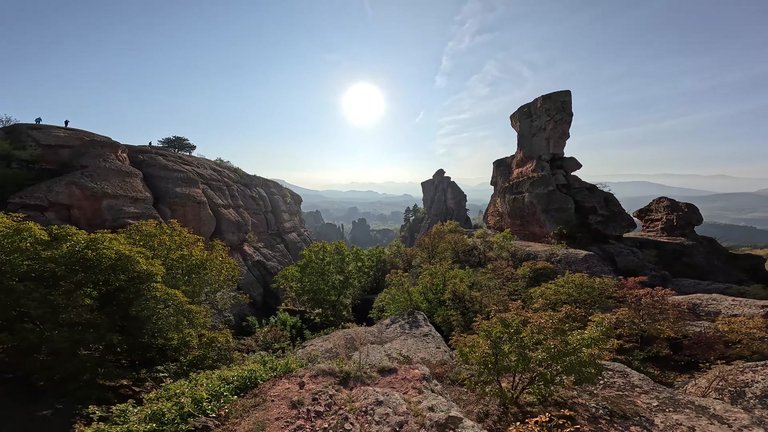
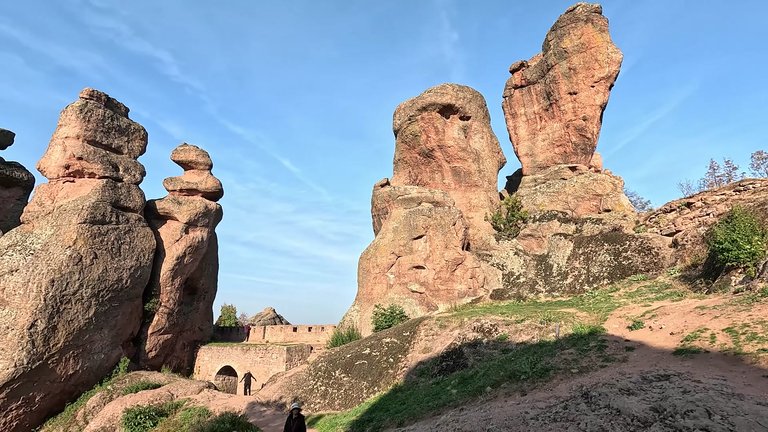
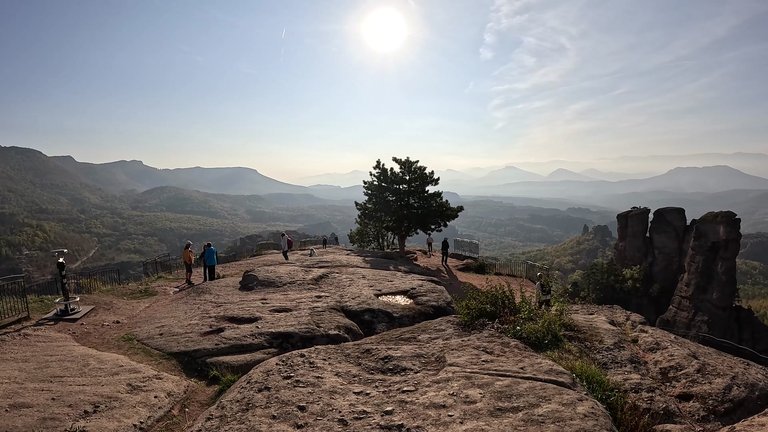
Many of the surrounding rocks have unique names and each one is associated with a legend. According to one legend, in ancient times a handsome shepherd and a beautiful girl fell in love in this region. However, one day a priest who came to the town saw the girl and decided to lock her away in a monastery because her beauty was blinding. The girl was sent to the monastery against her will and the young shepherd suffered greatly. Eventually he decided to become a priest himself and moved to a nearby monastery. However, some time later the girl had a child and the priests killed it. The young man then took his own life. After this tragic event some of these rocks came to be named after the girl, the shepherd and the priest.
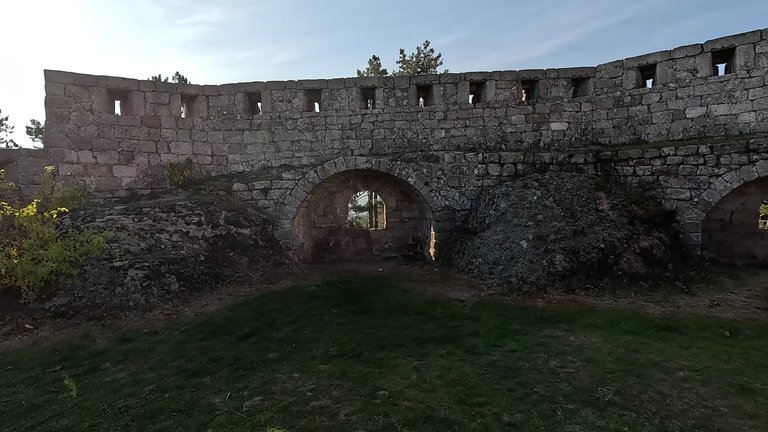
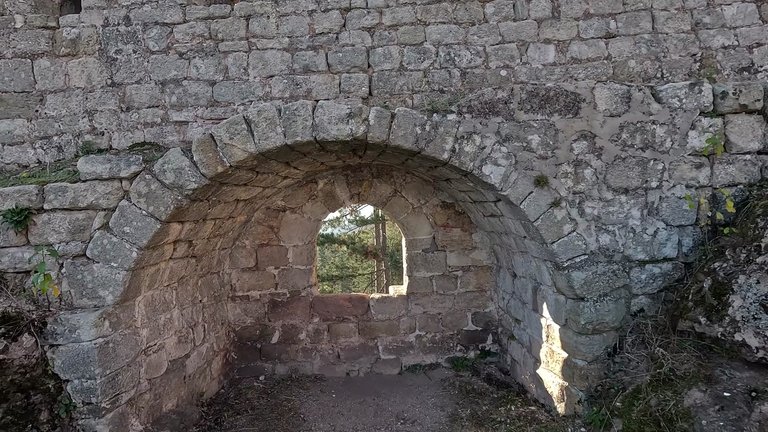
Indeed every rock has a name and their shapes are so interesting that it's possible to see faces or other figures in them. For example, one rock looks like it has a pine tree on top, reaching all the way to the peak. This reminds me of ancient times, the Vikings and their massive plains.
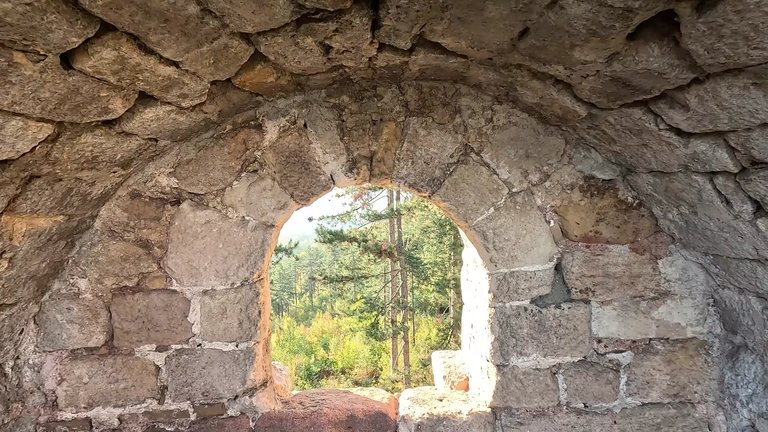
Walking through narrow passages between the high walls, you walk through Roman-era fortifications and the rocks around you blend so naturally with the walls that the fortress almost seems like a part of nature. Outside, among the walls, there are water reservoirs carved into the rocks from the Roman period and they are quite impressive.
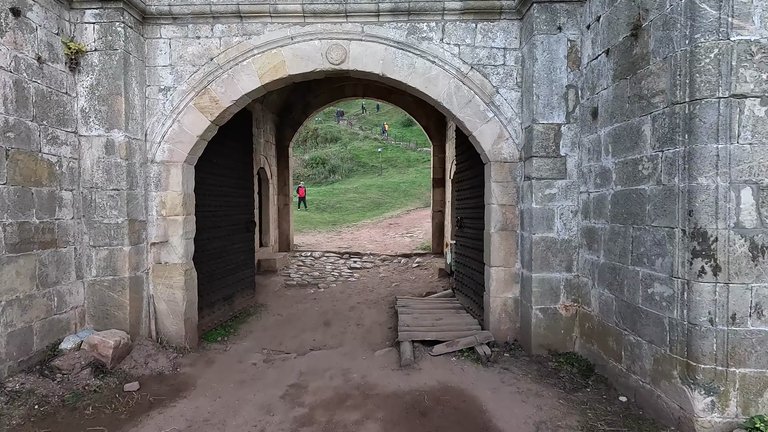
We know that the fortress was completely destroyed during the last Ottoman siege in 1325, but the Ottomans later rebuilt the fortress because of its significant geographical importance. Another feature that testifies to this rebuilding is the two small Ottoman-style towers at the entrance to the fortress. These towers serve as a reminder of the fortress’s defensive function.
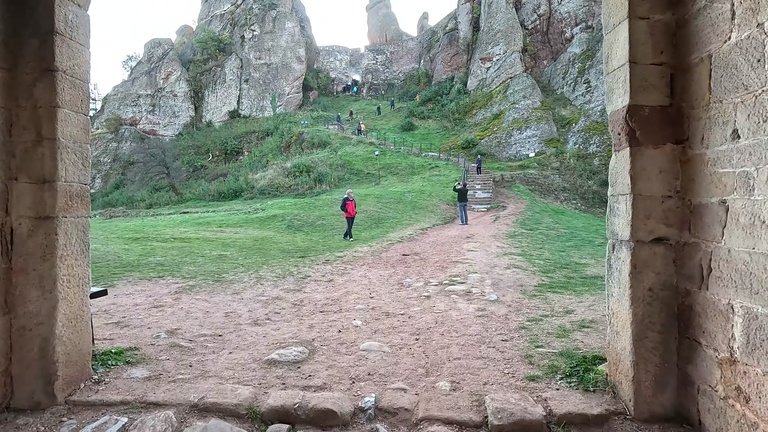
The town has hosted many civilizations from the Roman period to the present day. First Roman soldiers settled here, then the Bulgarians and finally the Ottomans. This fortress carries the traces of many peoples and civilizations throughout time.
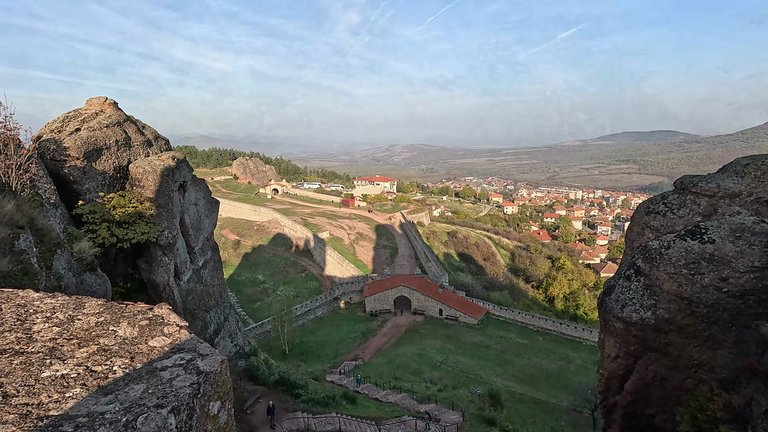
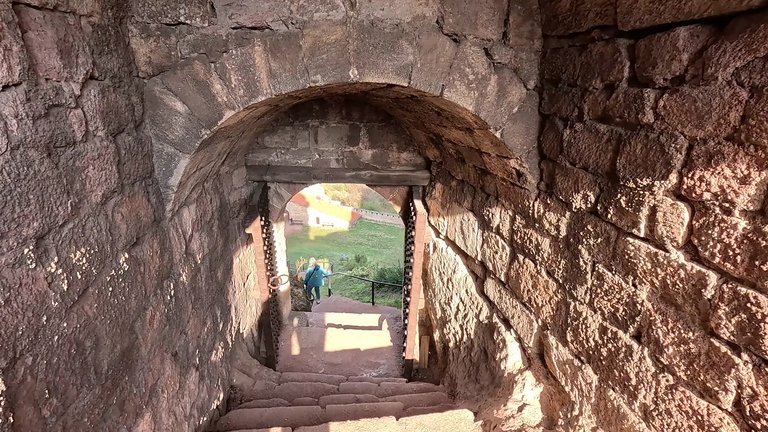
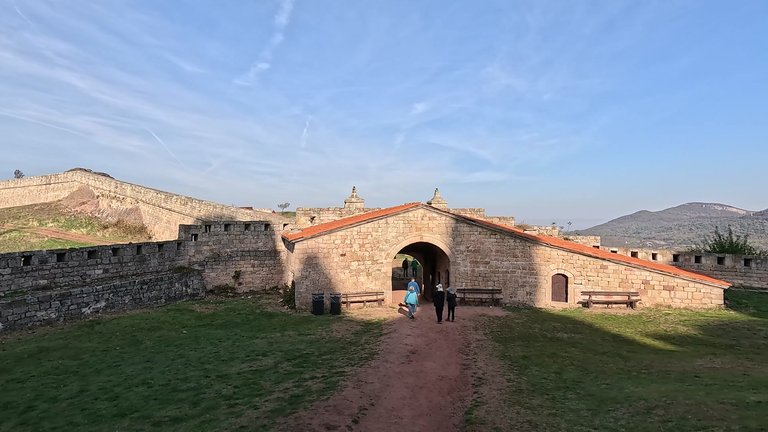
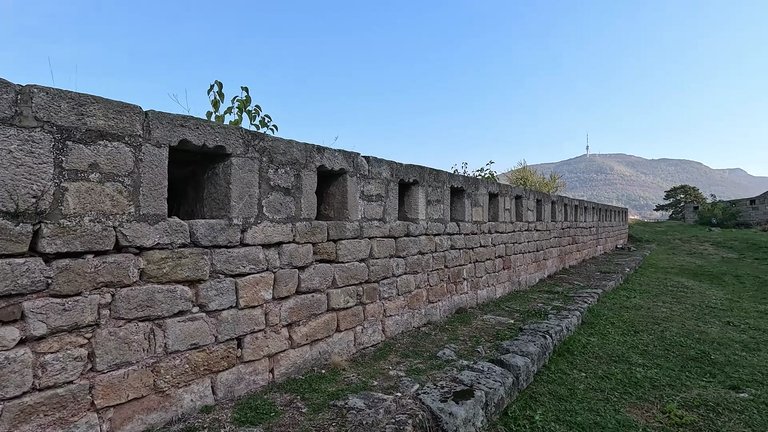
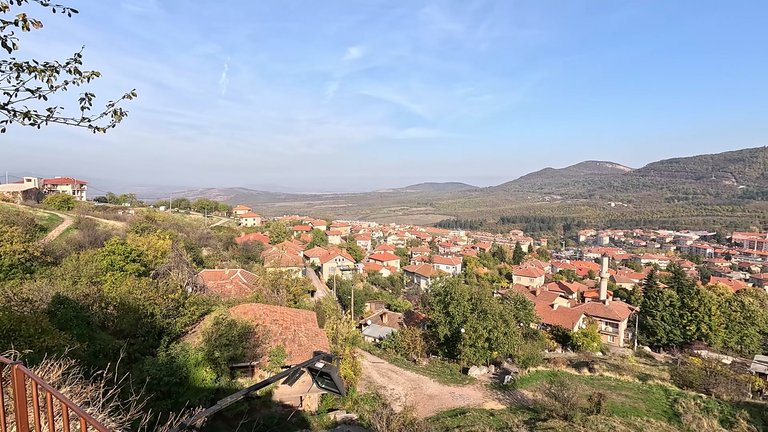
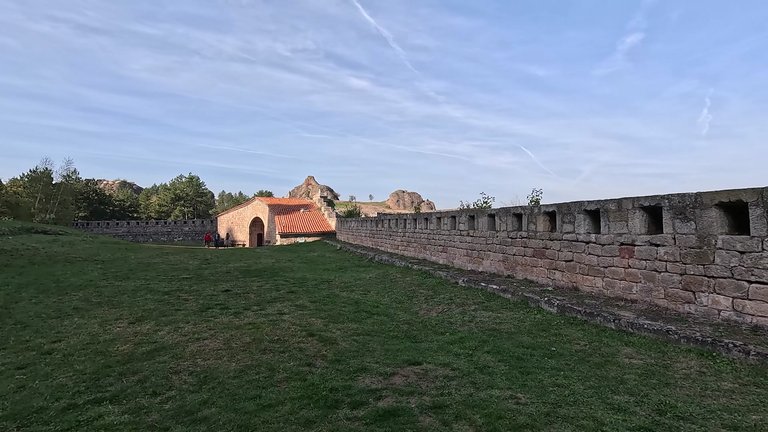
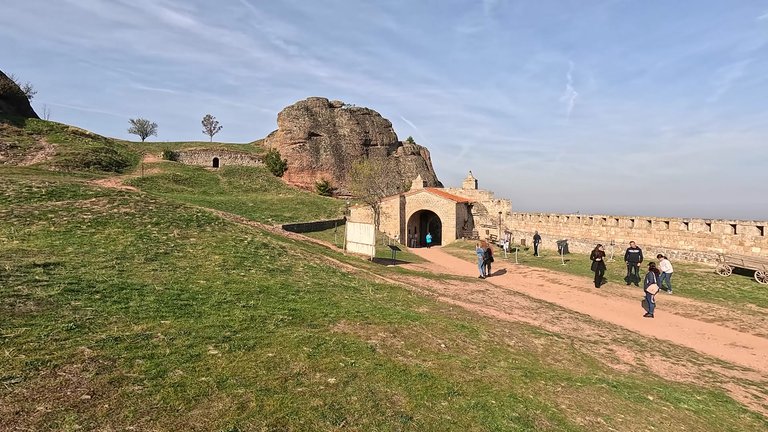
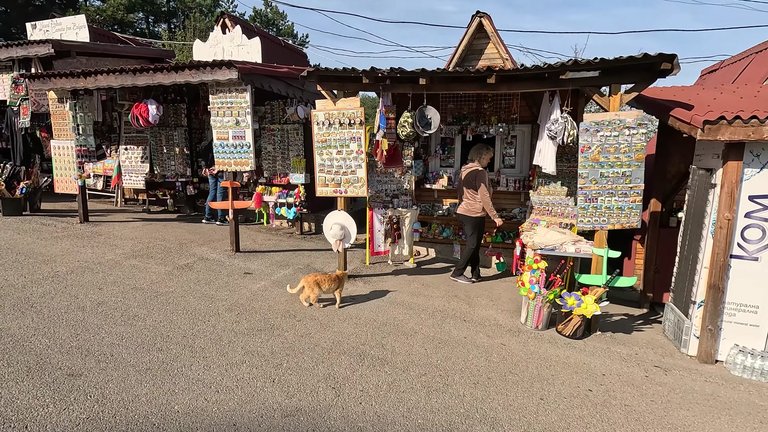
Afterward we visited Magura Cave, the largest cave in Bulgaria. This cave is also one of the largest in the Balkans. It has a history dating back 8000 years and humans have lived here since those times. Inside the cave there are ancient rock paintings in a gallery, but unfortunately, this area is closed to visitors. The cave is quite large and walking through it is an impressive experience. If you're lucky, seeing the enormous halls, stalactites and stalagmites would be awe-inspiring. The cave really feels like it's from another planet. It was built in limestone soil that formed around 10-12 million years ago. Of course, there was an underground river flowing here, which created these magnificent arches. There are also remains of a cooking stove used by the people who lived in the cave. And animal and human bones, especially those of cave bears, have been found here. These bears could stand up on their hind legs and reach a height of 8 meters. The cave is truly vast and impressive. It was accidentally discovered in 1901, but its entrances were closed off and the cave was opened to tourism in the mid-20th century. Today the cave hosts a giant bat population. Unfortunately, the lighting is insufficient, so taking photos here is not recommended. This bat colony consists of around 500.000 individuals.
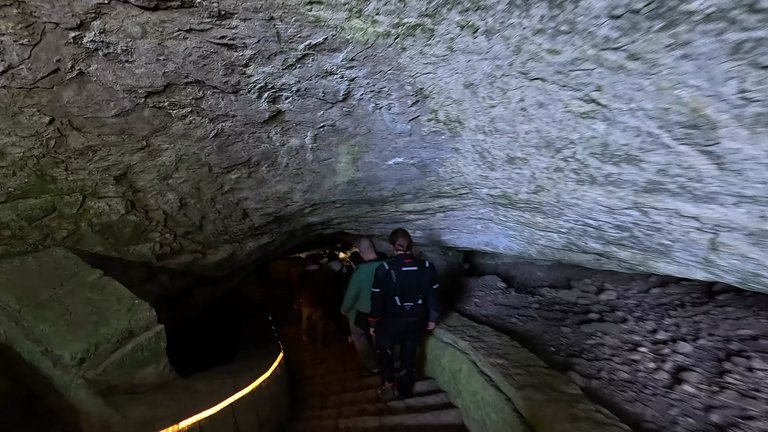
The cave is particularly famous for the rock paintings etched on the walls. The large hall, where these paintings are found, is currently inaccessible due to past vandalism, but reproductions of some of the paintings are available. Traces of the underground river are still visible in the cave. Stunning stalactites and stalagmites have formed and many fascinating shapes have emerged, showcasing the wonderful work of nature.
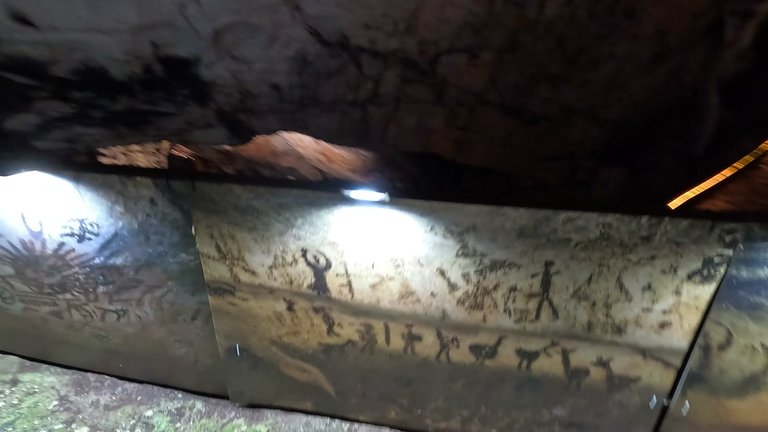
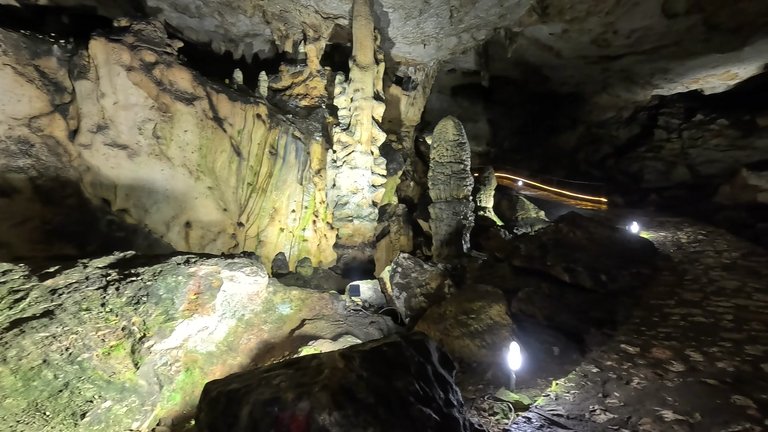
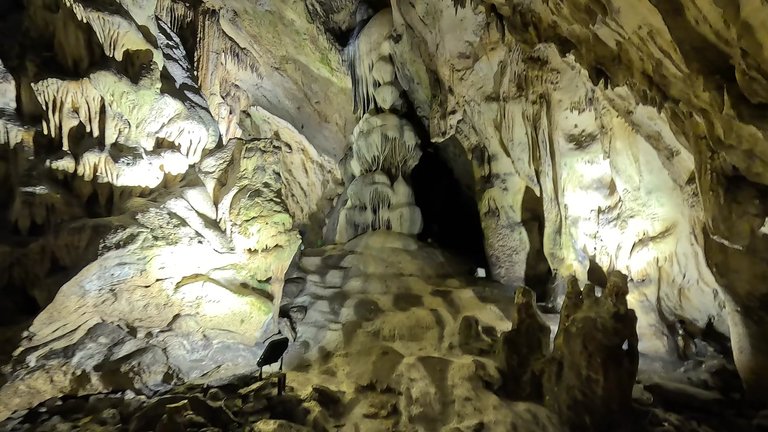
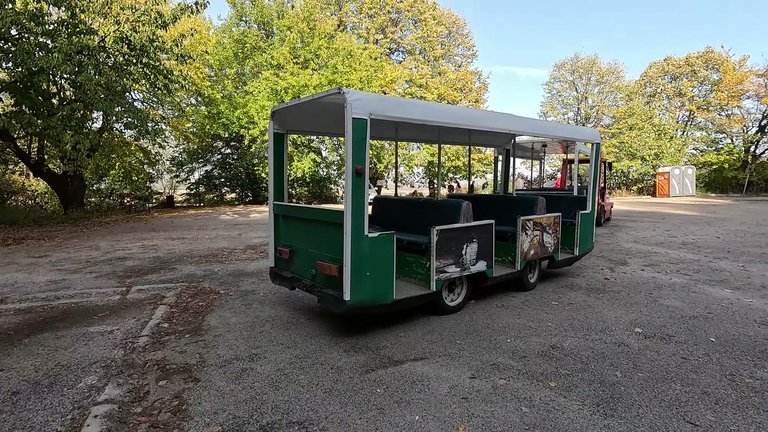
Throughout our journey we saw many interesting places. One particularly interesting spot was the area around the largest lake in Bulgaria. Here the river flows through the cave and merges into the lake, with a large mountain sitting above the lake.
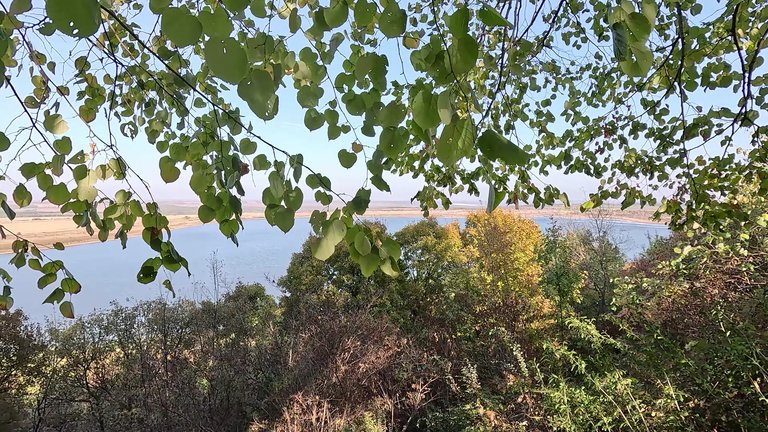
Finally we arrived at Vidin, the last stop of our journey. This town is located on the western bank of the Danube River and is a very calm and beautiful place. Here we visited the best-preserved medieval fortress in Bulgaria. The fortress has a long history and is still in very good condition. Inside the walls and structures have gone through a good restoration process. The fortress has three main defense lines, each quite sturdy. The historic buildings in the town also carry traces from ancient Rome.
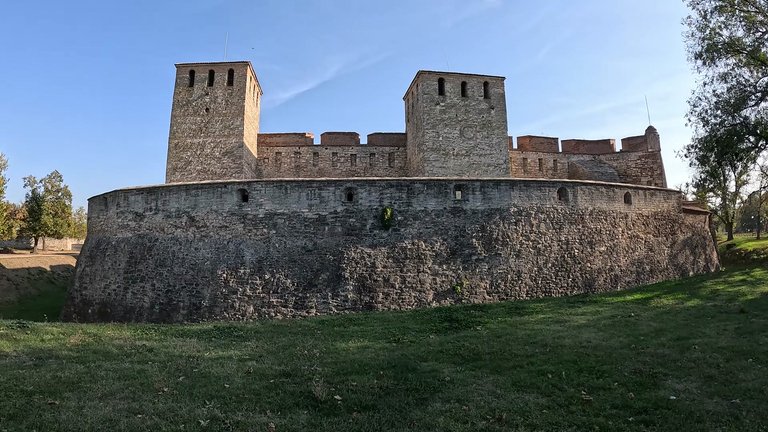
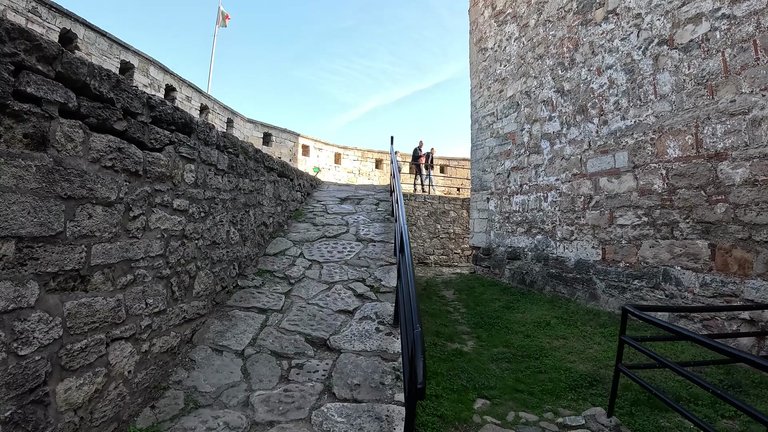
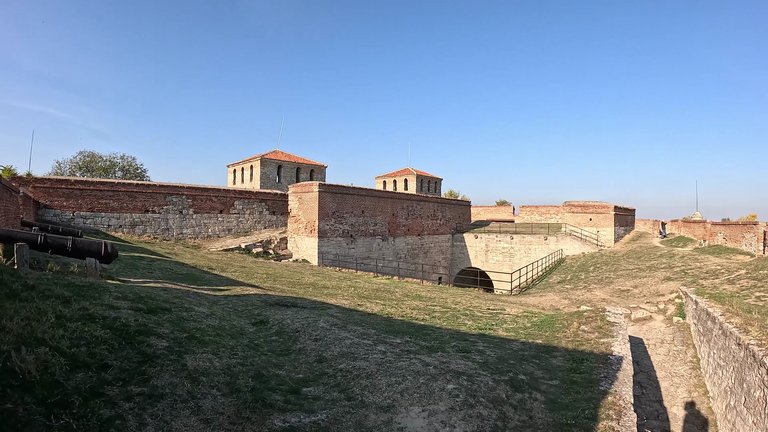
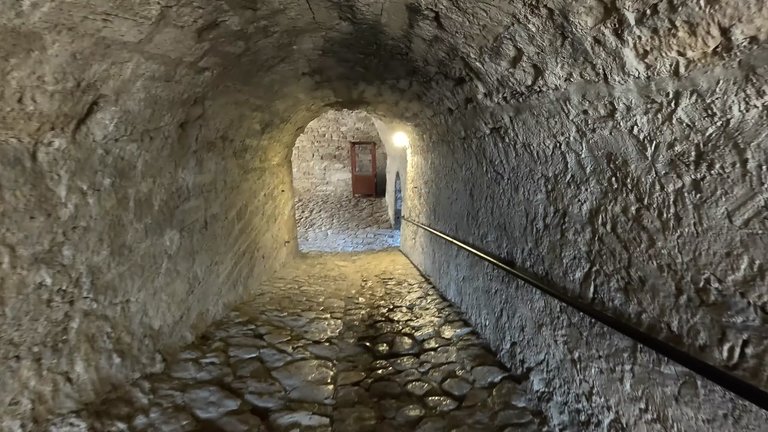
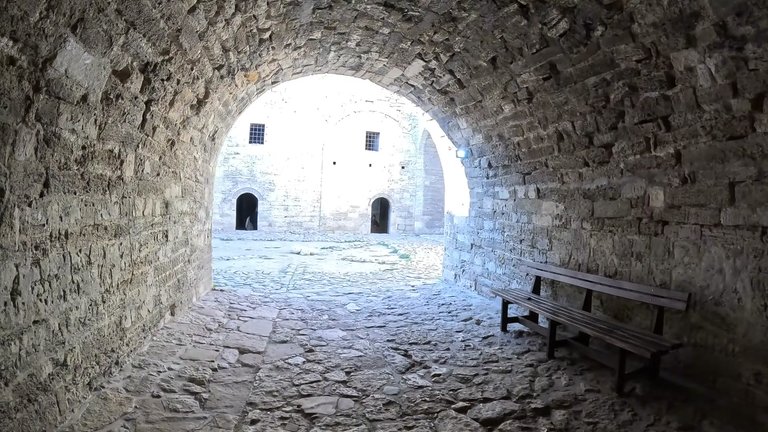
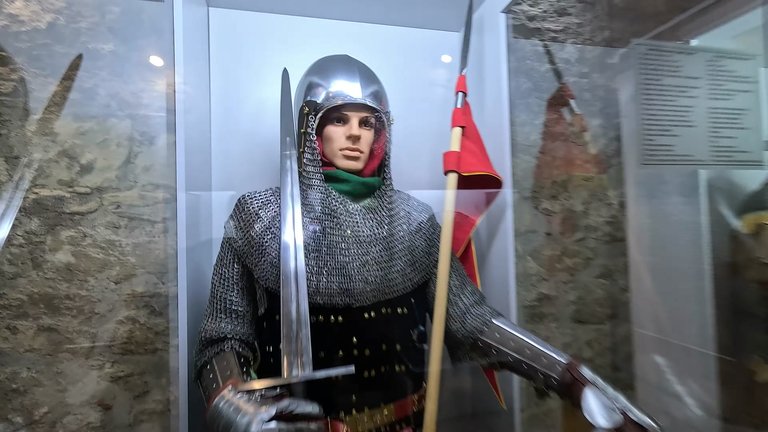
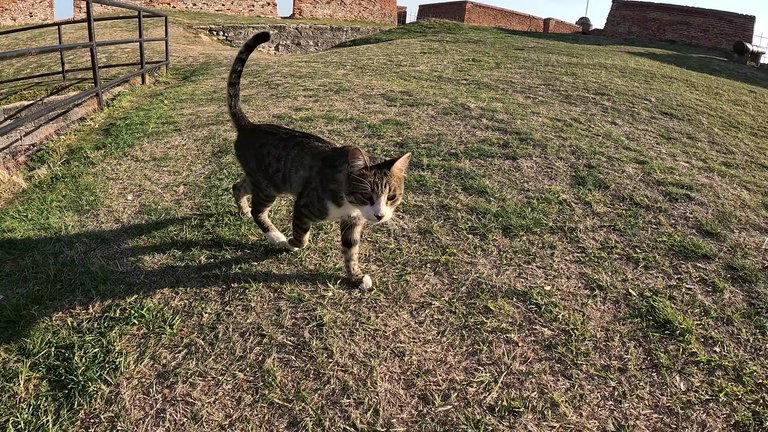
At the end of our journey we also visited a cave called "Eyes of God" This cave is famous for its enormous entrance holes. The scale here is truly impressive. The cave is 180 meters long and quite spacious. When sunlight passes through the holes in the roof, it creates incredible optical effects.
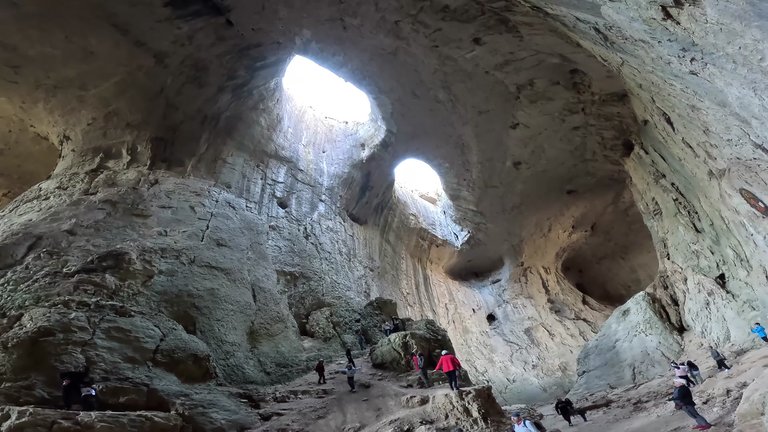
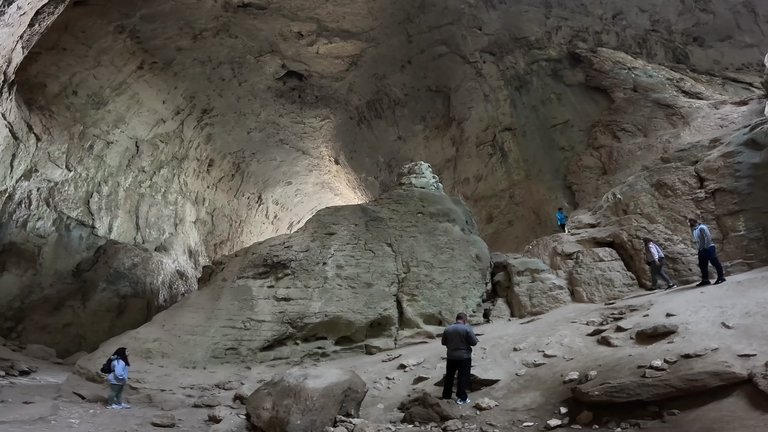
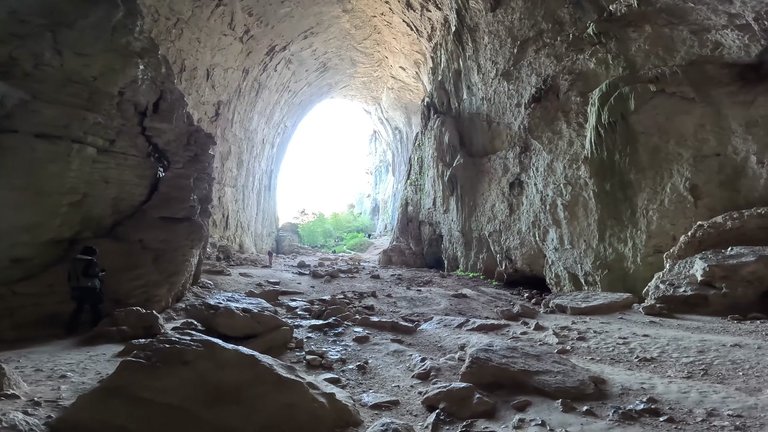
In the end we had planned to spend the night at a beach in the city, but due to nearby construction, the beach was unusable. Still we have wonderful memories from this trip. I hope you like my post. I highly recommend visiting Bulgaria. There is so much to discover here.
Wow, this is like giving the readers a virtual tour of the place. Every spot and every photo looks amazing. Thank you for sharing!
Thank you so much 😊 I'm so glad you enjoyed my post. It’s a pleasure to share these beautiful spots and moments with you
You’re welcome! Your post is truly a joy to see! 😁
You can check out this post and your own profile on the map. Be part of the Worldmappin Community and join our Discord Channel to get in touch with other travelers, ask questions or just be updated on our latest features.
Congratulations, your post has been added to the TravelFeed Map! 🎉🥳🌴
Did you know you have your own profile map?
And every post has their own map too!
Want to have your post on the map too?
- Go to TravelFeed Map
- Click the create pin button
- Drag the marker to where your post should be. Zoom in if needed or use the search bar (top right).
- Copy and paste the generated code in your post (any Hive frontend)
- Or login with Hive Keychain or Hivesigner and click "create post" to post to Hive directly from TravelFeed
- Congrats, your post is now on the map!
PS: You can import your previous Pinmapple posts to the TravelFeed map.Opt Out
Congratulations @belico! You received the biggest smile and some love from TravelFeed! Keep up the amazing blog. 😍 Your post was also chosen as top pick of the day and is now featured on the TravelFeed front page.
Thanks for using TravelFeed!
@for91days (TravelFeed team)
PS: Why not share your blog posts to your family and friends with the convenient sharing buttons on TravelFeed?
thank you so much
Hiya, @lauramica here, just swinging by to let you know that this post made it into our Honorable Mentions in Travel Digest #2378.
Your post has been manually curated by the @worldmappin team. If you like what we're doing, please drop by to check out all the rest of today's great posts and consider supporting other authors like yourself and us so we can keep the project going!
Become part of our travel community:
glad you liked it
thank you so much
You are very welcome @belico🐝❤️